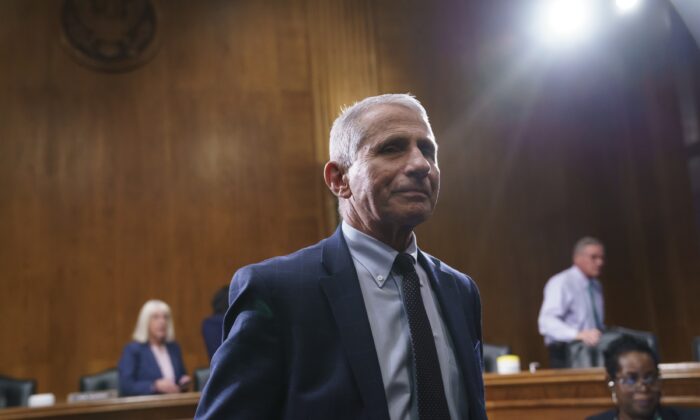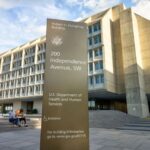By Zachary Stieber
Newly disclosed documents detailing U.S. funding of Chinese research into coronaviruses show that Dr. Anthony Fauci, a top public health official, lied when claiming the United States did not fund “gain of function” research, critics say.
The documents made public this week shed new light on how much money the National Institutes of Health (NIH) and one of its subagencies, the National Institute of Allergy and Infectious Diseases, which Fauci heads, granted to the EcoHealth Alliance.
The alliance, in turn, funneled the money to the Wuhan Institute of Virology, a top-level lab that sits a block away from the reported location of the first detected cases of COVID-19, the disease caused by the CCP (Chinese Communist Party) virus.
At issue is whether the U.S. money went to fund so-called gain of function research, research that includes modifying biological agents so they become more transmissible or lethal.
Fauci and Dr. Francis Collins, the head of the NIH, have insisted that the grants did not back such research. Fauci insisted so during multiple congressional hearings, resulting in tense exchanges with Sen. Rand Paul (R-Ky.), who is also a doctor.
According to Dr. Richard Ebright, a molecular biologist and professor at Rutgers University, the new documents, which include grant proposals that had never been made public, show that the grants to EcoHealth meet the federal definition of gain of function research.
“The materials confirm the grants supported the construction—in Wuhan—of novel chimeric SARS-related coronaviruses that combined a spike gene from one coronavirus with genetic information from another coronavirus, and confirmed the resulting viruses could infect human cells,” Ebright wrote on Twitter.
Both Ebright and Paul say the new documents confirm that Fauci was not truthful with the public regarding the grants, with Ebright also charging that Collins lied as well.
Collins and Fauci were “untruthful” when they claimed that the NIH did not support gain of function research or potential pandemic pathogen enhancement at the Wuhan lab, Ebright wrote.
Paul also reacted on social media.
“Surprise surprise—Fauci lied again. And I was right about his agency funding novel Coronavirus research at Wuhan. Read this thread and the papers released,” he said, pointing readers to a series of posts from Ebright.
“The U.S. did fund ‘gain of function’ research in Wuhan. Fauci lied,” added Rep. Lauren Boebert (R-Colo.).
Sen. Roger Marshall (R-Kan.), another doctor, wondered how people could still trust Fauci.
“Either he’s completely misinformed or has intentionally lied to Congress & the American people multiple times,” he alleged.
Fauci and Republicans have clashed during congressional hearings on multiple occasions. In July, Paul said Fauci lied to Congress when he said two months prior that the NIH did not fund gain of function research. He asked Fauci to retract his previous comments.
Fauci, visibly shaking with anger, refused, charging that he did not lie and accusing him of not knowing what he was talking about.
Shortly after the hearing, Paul sent a criminal referral of Fauci to the Department of Justice.
The newly disclosed documents “make it abundantly clear that he needs to be held accountable,” the senator added on Tuesday.
People convicted of lying to Congress can be imprisoned for up to five years.
Fauci previously admitted he misinformed members of the public about the efficacy of masks out of concern that there wouldn’t be enough masks for healthcare workers.
Spokespersons for the NIH and Fauci’s agency did not respond to requests for comment. Fauci appeared on CNN on Tuesday morning but was not asked about the newly released documents.






